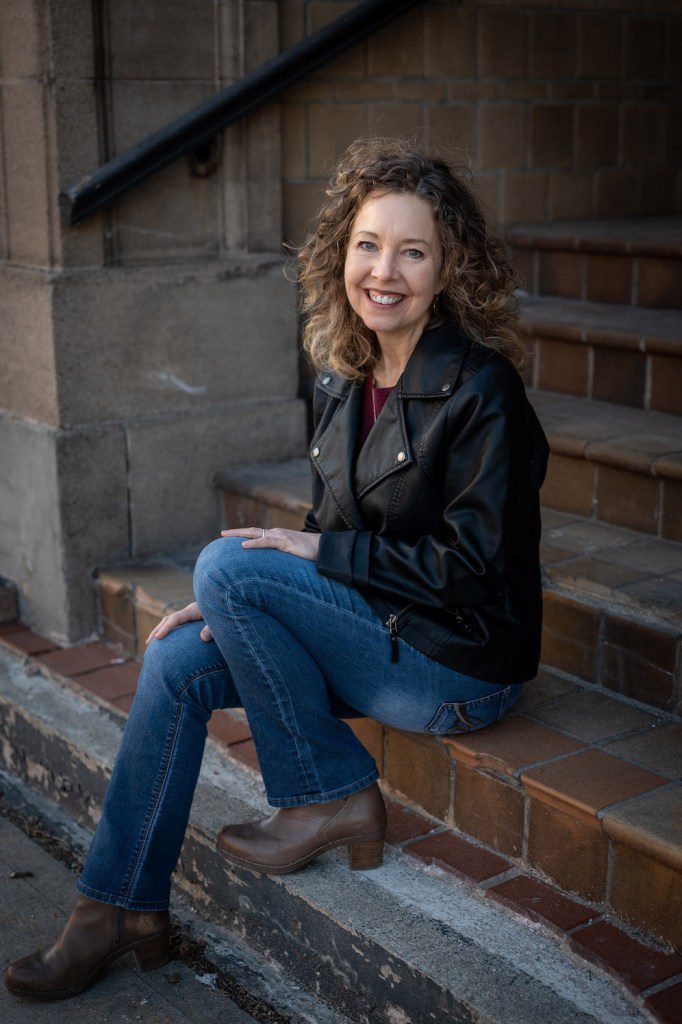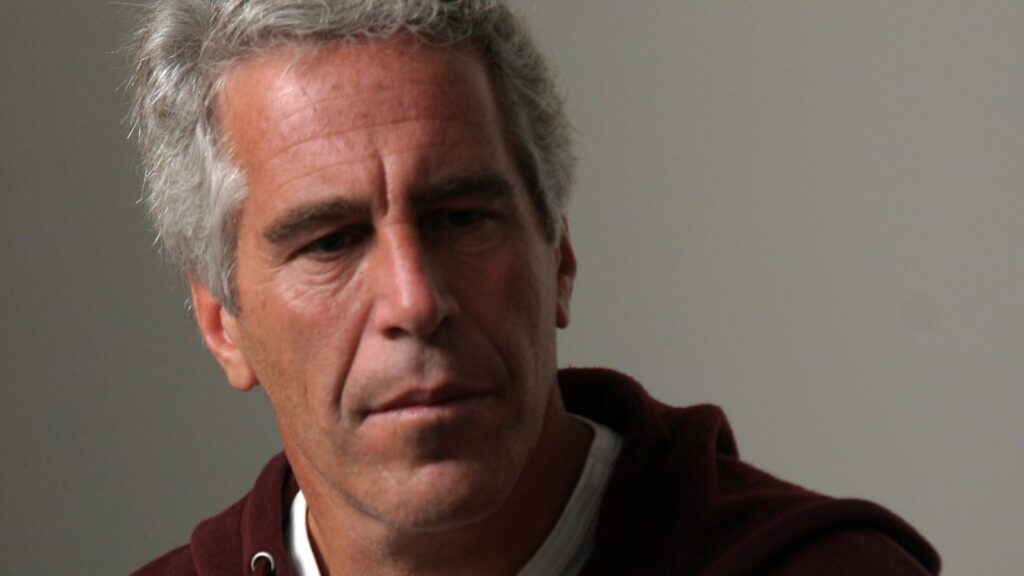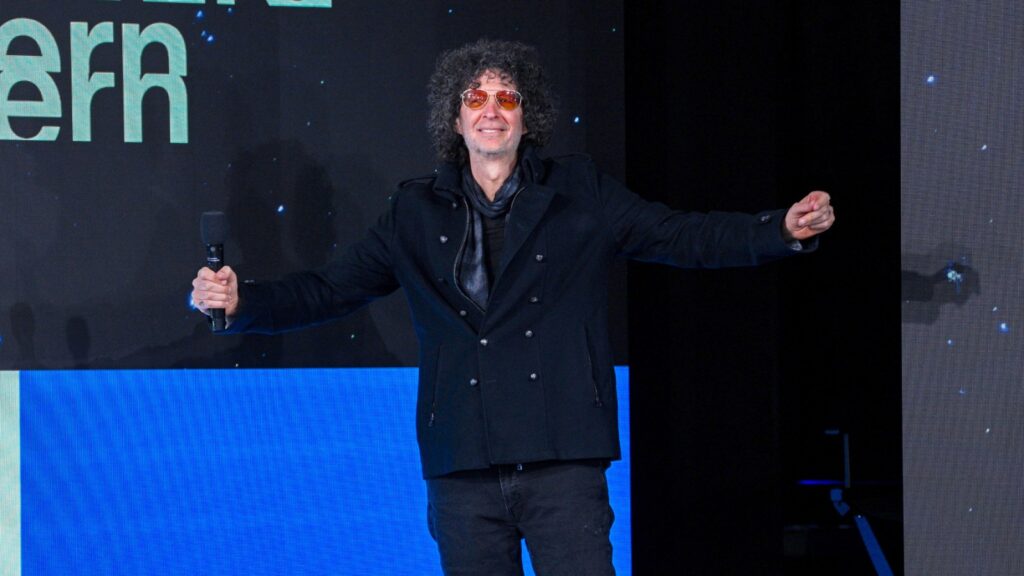Meet the Rhetoric Professor Who Can Break Your Cycle of Dating App Disappointment
There’s something comforting about watching Jennie Young’s TikToks. It may have to do with the calm assurance of her voice: it feels like you’re meeting during private office hours. Except, instead of the essay that’s due next week, you’re talking about the challenges of finding your soulmate on Hinge. A professor of English and gender studies at University of Wisconsin-Green Bay, Young earned her PhD in applied rhetoric and discourse studies, and in her videos discusses a topic that she also teaches as an undergrad course: “The Rhetoric of Dating and Intimacy.”
For a recent clip, she shared a screenshot of a dating app greeting from a man that read, “Hello. How are you. Is getting a boner looking at someone’s photo a compliment?” — followed by a shrugging emoji. The man’s follow-up message seemed to acknowledge that the first text crossed a line: “I’m sorry that was inappropriate well you look like you have a sense of humor.” Young identified this one-two combo as a common red-flag pattern in male communication online: “Test and Apologize.” As she explained, “The test is real, the apology is not. This is a boundary violation, and it’s a form of manipulation.” She also called it a potential indicator of abusive behavior in the future, and extended her analysis with a “semiotic” reading of profile pics where men purposefully accentuate their bulge but will pretend they did so by accident. This strategy, Young claimed, is nothing more than a visual variant of “Test and Apologize.” On her Instagram post, a commenter replied, “This happened to me! He showed me a shirtless bulge pic at dinner pretending it was about something else in the photo. When I was offended he kept apologizing.”
Such are the collaborative investigations of Young and her followers: almost 60,000 on Instagram, plus more than 10,000 subscribers to her Substack about the “Burned Haystack” dating method. The name comes from the simplest solution to the problem of finding the proverbial “needle in a haystack” — you burn down the haystack. In Young’s online dating analogy, that means not just swiping past people you don’t want to date, but freely and actively blocking them in order to focus your search and avoid repetitive match suggestions from the algorithm.
“I mean, I block everybody now,” Young tells Rolling Stone. “Like, I blocked my own doctor for sending me too many emails. I just blocked my cat’s veterinarian because I don’t need the texts. It’s really empowering. You know, we all have so much coming at us all the time, and it’s really bad for our nervous system.”
The Burned Haystack phenomenon began with Young’s introduction to the apps, which she first tried at the age of 50. She had assumed users would mostly communicate the way they did in real life and was shocked at the “bizarre” texting habits people had developed in world of online matchmaking. “I don’t even want to say norms, because they’re not normal,” she says. Channeling her expertise, she began to catalog some of the rhetorical styles she saw invoked over and over.
“Really, I wanted to create a cheat code so that I would not be wasting so much time on the dating apps, but also that would force them to work better,” Young says. “I started experimenting with it myself, and I shared it with a few friends, and what we found was that if you changed your approach in accordance with this rhetorical work I was doing, then it changed everything. The matches got way better.”
Courtesy of Jennie Young
Young says she’s never been much for self-promotion on social media, so she’s surprised and encouraged by how quickly and organically the Burned Haystack community has grown over the past year and a half. This month, she announced a major book deal, and she’s now at work on a book called Burn the Haystack: Decode Dating, Torch the Duds, and Find Your Needle, to be published by HarperCollins. Already, though, she says, there are “psychologists, clinical social workers, therapists, and domestic abuse survivor educators” who have adopted her methodology into their professional practices, which “means a lot more to me than getting anybody dates.”
Still, Young remains invested in the project as a feminist framework for helping women navigate digital platforms they find “very toxic and aggressive and deceitful.” Beyond the creeps, she says, there are all kinds of structural problems that account for women’s general impression that dating apps are now worse than ever, including: the rote similarity of men’s profiles, their “performative illiteracy” when it comes to reading profiles or messaging, the polarization of our national politics, and the failure of the apps to filter potential matches according to the parameters that users set. Tinder, Bumble, and the like will also recycle people you’ve already dismissed, which is part of why Young advocates for blocking anyone who fails to gain your interest.
Burned Haystack has 10 cardinal rules designed to fundamentally alter your approach to the apps. Number one reminds us that these are tools, not hangout spaces — Young encourages followers to think of an app like a toothbrush, something you briefly pick up twice a day for a specific purpose. She discourages notifications, says to focus on messages over scrolling, advises abandoning dialogues that don’t soon lead to in-person interaction, and warns women not to continue performing “CPR” on a conversation that a man keeps allowing to die. Another type of man not to waste time on, she says, is one who seems unable or unwilling to help make a plan for an actual date.
Beyond the basics, Young combs through reader feedback to stay abreast of new trends and tricks. On Wednesday, she posted a video observing that “there is suddenly this critical mass of men who are using their dating app profiles to claim that what they really want more than anything is ‘peace,’ and/or ‘a peaceful woman. What they mean by ‘peaceful’ is ‘compliant.’ And those are two different things. And I don’t think you should be deceived by this.” Young’s take? Give them what they want by saying, “Peace out, Boy Scouts.”
One major reason that people find the apps demoralizing, Young points out, is that “people who have relationship-related problems are more heavily represented,” so a snapshot there “probably gives you a bleaker picture than what you’re seeing in the general population.” She says her Gen Z students are particularly opposed to the dating process imposed by these companies, which will have to quickly adapt to reverse the current trend of a key age demographic abandoning their platforms in droves.
“I don’t think dating apps are going to go away,” Young says, in part because “people aren’t going to stop trying to find love.” But new platforms will emerge in the next few years, she thinks, some more successful than others. Meanwhile, Young predicts, “dating is going to become diversified in terms of modality. We’re starting to see a lot more organized in-person events, and things like date-me docs — people are creating these really robust, comprehensive dating profiles, just on Google Docs.” She also points to the phenomenon of a new semi-offline singles scene based around polaroids and mini-biographies posted on a brick wall in a Brooklyn park. (The organizers of this match system, called Pique, are seeking funding to expand it throughout New York and beyond.)
But certain things, it seems, will never change. Young doesn’t have an answer to the question of why men still use pictures of themselves holding fish they’ve caught on their dating profiles. “It’s the punchline of every internet joke,” she says. “It’s baffling. If you could answer that question, yeah, you would have some kind of insight that nobody’s been able to glean.”
The “greatest irony” of the gig as a dating guru, says Young, is that she’s put her own search for romance on hold so she can juggle her teaching job and Burned Haystack research. “I took myself off the dating apps a little over a year ago, and I’ve just been really focusing full-time on scholarship stuff. Plus, I mean, can you imagine meeting me and dating? I think I’ve sort of disqualified myself from that particular venue. I’m just flying solo.”
That’s to say nothing of the horrors she has encountered by staring deep into the abyss of the online dating pool. “Oh my god, I’ve seen way too much,” she adds with a laugh.





